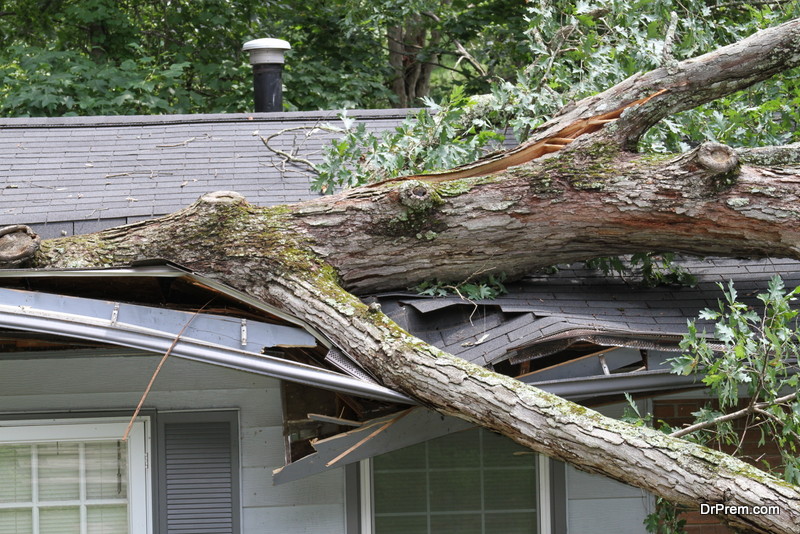Whether you’ve experienced a natural disaster like a flood or tornado, or an electric fire occurred in your home, the damage itself can be quite traumatic. Now imagine on top of the damage, you’re struggling to get your homeowner’s insurance to pay on your claim, adding further stress to the process and increasing the time you have to wait for repairs or to purchase a new home. Here’s what you need to know about making a claim on your home, so you know what to expect should unfortunate circumstances befall you.
Insurance Companies Pay the Lowest Amount on The Claim Possible
 Anytime an insurance company has to make a payout on a claim it’s considered a loss. That’s because insurance operates on the idea that ideally, you’ll never have to use it. You pay a monthly premium, and if you never have to make a claim, the insurance company pockets your premiums for the duration of the policy.
Anytime an insurance company has to make a payout on a claim it’s considered a loss. That’s because insurance operates on the idea that ideally, you’ll never have to use it. You pay a monthly premium, and if you never have to make a claim, the insurance company pockets your premiums for the duration of the policy.
When it comes to actual claims, an adjuster will likely be sent to your home to check the damage and make an adjustment to your claim as they deem necessary. Remember that the adjuster is not there to make your life miserable, but it is the policy of most insurance companies to reduce the claim as much as possible.
Your Policy May Not Cover the Damage
Did you know that certain companies/states actually require flood insurance as a separate product to home insurance? That means if a hurricane hits your costal town, or sends millions of gallons of seawater inland and your home floods, you’re at a loss without flood insurance. Many home owner’s insurance policies will not cover flood damage; leaving you without a home or any way to recover the cost of your losses.
It’s vital that you understand the details of your policy. When you purchase the policy, pay close attention to the wording. What is covered? What is your deductible, if any? What specific things are not covered? The better you understand your policy, the easier you can navigate the claims process and get the maximum amount you’re entitled to.
Create a Statement of Loss Immediately
 Your statement of loss will go straight to your adjuster and describes everything you lost to whatever damage your home was exposed to. Some insurance companies will ask for detailed information, even including receipts of proof of purchase for high-price items.
Your statement of loss will go straight to your adjuster and describes everything you lost to whatever damage your home was exposed to. Some insurance companies will ask for detailed information, even including receipts of proof of purchase for high-price items.
While it’s understandable that the time right after a disaster can be the most traumatic, it’s important that you tally up your losses quickly so you can get the recovery process started as soon as possible. Remember that the quicker you start, the quicker you can receive your check and begin replacing your belongings or repairing your home.
Public Adjusters Can Help You Maximize Your Claim
A public adjuster acts as an advocate for the policyholder, performing their own analysis of the damage and working with your insurance company to ensure you’re getting the most out of your claim. Sometimes it’s better to have another professional on your side of the field to help you navigate the complicated process that is insurance claims.
Public adjusters will charge a fee for their services, but this fee is normally waived until the process is completed and you receive your settlement check. The folks over at letusclaim.com are exactly the right professionals for the job. Check out their website if you’re looking for representation in the form of a public adjuster.
Most Items Aren’t Paid for At Full Retail Value
 When you submit your statement of loss, the adjuster will look over it and provide a price adjustment for the items within your claim. Obsolete or impossible to replace items may not even be included in your policy, meaning certain sentimental items may be lost forever.
When you submit your statement of loss, the adjuster will look over it and provide a price adjustment for the items within your claim. Obsolete or impossible to replace items may not even be included in your policy, meaning certain sentimental items may be lost forever.
Often, you will receive much less than the total value of the policy, due to the actual cost of items, limits within the policy, and so on. This is just one more reason to familiarize yourself with the language of your policy and purchase further coverage if necessary.
Conclusion
Making a claim can be the last thing you want to do during a traumatic time, but it’s important to do so as soon as possible so you can begin to rebuild and replace. Be sure to familiarize yourself with your policy and seek representation if you feel you aren’t able to navigate the process alone.
Article Submitted By Community Writer




